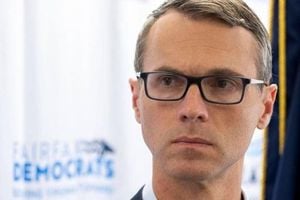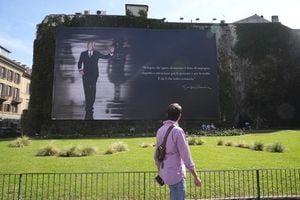On August 19, 2025, two very different but oddly parallel stories unfolded on opposite sides of the globe—each marked by hope, resilience, and the frustrating reality of visa complications. In India, boxers on the cusp of the World Championships found their preparations thrown off course when travel documents failed to materialize. Meanwhile, in Northern Ireland, a university’s ambitious plan to host educators from Gaza for a week-long program on rebuilding education in conflict zones was derailed by similar bureaucratic hurdles, prompting a last-minute change of venue from Belfast to Cairo.
For India’s boxing contingent, the stakes were high. The World Championships, set to begin in Liverpool from September 4 to 14, promised to be historic: for the first time, both men and women would compete in Olympic-style events under the newly established World Boxing governing body, with ten weight classes each. The run-up to such a momentous event is always intense, but this year’s preparations took an unexpected turn.
According to PTI, the Indian team had meticulously arranged a multinational training camp in Sheffield, UK, scheduled from August 17 to September 1. Teams from Ireland, France, Germany, Uzbekistan, the USA, Poland, and other countries were set to join, making it a critical opportunity for high-level sparring and tactical fine-tuning. But as the departure date approached, only four women boxers and a handful of coaching staff managed to reach the UK. The rest—ten male boxers and six more female pugilists—remained stranded at the National Institute of Sports in Patiala, their bags packed but their passports untouched by the necessary visas.
The situation left the men’s squad in an awkward limbo, with just one coach available in Patiala, while three others, including head coach Dharmendra Yadav, were already in Sheffield. “Yes, the three of us have reached here but all the (male) boxers are still waiting for their visas. We had to start sparring in the multinational camp from Wednesday but we cancelled it as we don’t know when the visa will arrive and when the boxers will be able to reach here,” Yadav explained to PTI. The planned sparring sessions—so vital for building confidence and sharpening skills—were abruptly cancelled.
The Boxing Federation of India’s Interim Committee scrambled to resolve the crisis. Col Arun Malik, a committee member, provided an update: “However, as the process is largely automated, interventions so far have not been able to resolve the delays. That said, we have received 3 more visas, and 12 members of our 31-member contingent, including 4 women boxers, have already reached England. On our part, all logistical arrangements are ready, and the moment we have clarity, we will ensure that the remaining players travel to England without delay. We remain hopeful that the pending cases will be resolved soon, enabling the entire team to join the camp at the earliest.”
Among those still waiting in Patiala were some of India’s brightest hopes: Olympic medallist Lovlina Borgohain, Commonwealth Games bronze-winner Jaismine Lamboria, and Asian Games medallist Narender Berwal. The women’s head coach, D Chandralal, had received his own visa but stayed behind for the Boxing Federation of India’s elections. “Four (female) boxers have reached and 2 coaches are there in the UK. I have received my visa but I stayed back for the BFI elections. But I have given the plan to the coaches there and they will conduct training according to that. They have some sparring sessions scheduled. In the meantime after the elections I’ll stay with the rest of the boxers,” Chandralal told PTI.
While the boxers and their coaches waited anxiously, the broader significance of the World Championships loomed large. The event would not only test athletic prowess but also mark a new era for the sport under World Boxing’s guidance, bringing men and women together in Olympic-style competition for the first time. For the athletes, missing even a few days of high-level preparation could spell the difference between victory and defeat.
Thousands of miles away, in Northern Ireland, another group faced a very different kind of challenge, but one that was equally entwined with the difficulties of international travel. Queen’s University Belfast (QUB) had planned to bring 40 educators from Gaza to its campus for a seven-day course focused on trauma-informed pedagogy and rebuilding education in conflict-affected societies. The program, a collaboration with Forward Thinking and St Mary’s University College, aimed to share lessons from Northern Ireland’s own journey from conflict to reconciliation, exploring how education can offer hope and stability amid chaos.
But, as reported by the university, visa complications made the original plan impossible. Instead, QUB staff traveled to Cairo, where they could meet the Palestinian educators and carry out the program in person, with St Mary’s University College contributing virtually. “Queen’s holds University of Sanctuary status and has a long-standing commitment to supporting education in conflict-torn regions, demonstrated through our partnership with the Council for At Risk Academics, our Copty Scholarships for Palestinian students, and by sharing expertise gained from Northern Ireland’s own journey towards reconciliation,” said Dr Ryan Feeney, vice-president of governance and external affairs at QUB. “It was our hope to facilitate this programme on our campus in Belfast; however, the complications with visas meant this was not possible, and we will attempt to do this again later in the academic year.”
The Copty Scholarship, first introduced in 2020 and expanded in 2024 to cover four postgraduate places for students from Gaza or the West Bank, has become a lifeline for Palestinian scholars. Yet even this initiative has not been immune to the region’s instability. This year, one scholar faced enormous challenges being evacuated from Gaza due to escalating violence and increased restrictions on movement. QUB has pledged to keep the scholarship place open and is working with governments to secure safe passage for the student.
Professor Peter Finn, principal at St Mary’s University College, underscored the program’s deeper significance. “We feel privileged to make a small contribution to the process of rebuilding and shaping of education in Palestine. Our focus is on the role of teachers and teacher education, as well as community-based educational initiatives and international outreach in offering some hope to a place which has been devastated. We are very conscious of the humanitarian catastrophe in Gaza and the fact that thousands of innocent children have been killed. We do not underestimate the scale of the education challenge in Palestine and we know there are no ready-made solutions, however this collaborative initiative of Queen’s University and St Mary’s University College is based on the most precious human value of hope.”
Both stories—one about athletes chasing their dreams, the other about educators striving to rebuild shattered systems—highlight the immense, often invisible barriers that can stand in the way of progress. Whether it’s a boxing ring in Liverpool or a classroom in Gaza, the journey is never just about talent or ambition. Sometimes, it’s about getting the paperwork through on time. And sometimes, as these two cases show, hope and determination are the only things that can carry people forward when systems fall short.




